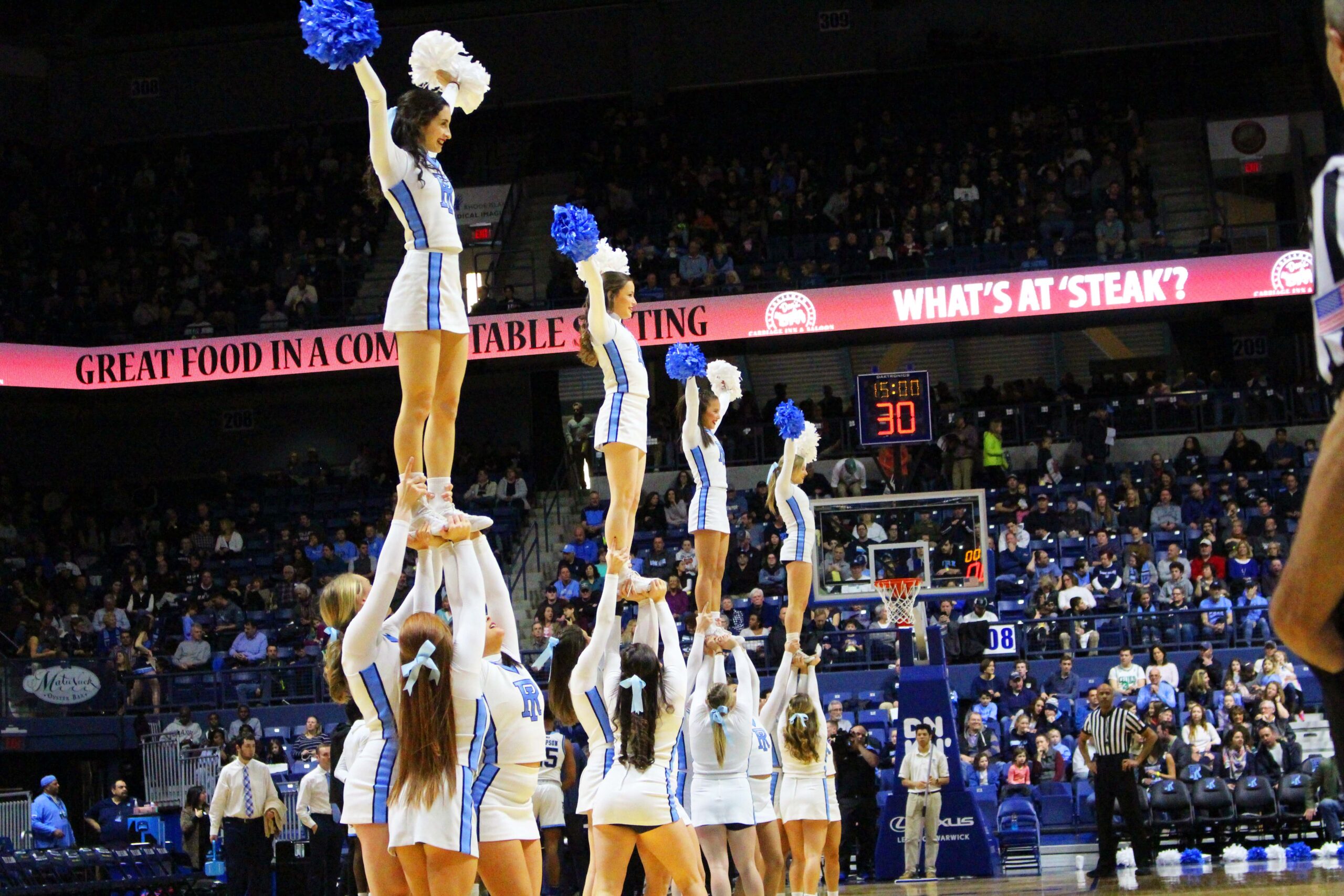With much of the focus on sports during the COVID-19 pandemic, the Cigar decided to take a closer look at URI’s cheerleaders and Ramettes. Photos by James McIntosh.
Fresh off their first-ever Universal Cheerleaders Association (UCA) Nationals win last year, the University of Rhode Island’s cheerleading team was on a high going into their 2020-21 season.
While the pandemic has created some challenges in their season, the team remains optimistic.
The team graduated 12 seniors at the end of their 2019-20 season and took 20 freshmen in turn for this current season, leaving the team with 31 girls. According to head coach Cassidy Hall, this year would have been a rebuilding year, even without the pandemic.
This season started in late September as opposed to its typical June start, according to Hall, meaning the team had lost almost six months of practice time. At the beginning of the season, the team was only able to practice in pods of four and gradually worked their way toward full team practices, according to Hall.
“The first three weeks of practice was strictly conditioning and tumbling, which honestly was really hard to watch,” she said. “We practice for three hours a day three times a week, and strictly tumbling and conditioning was hard on the girls since they hadn’t cheered since March.”
The transition has been the hardest for the freshmen on the team, who had never met the coaches nor had a “Rhody Practice” before. Hall said that they still don’t know what a real practice looks like because of COVID-19 protocols constantly changing.
During a normal season, the cheer team would be busy right now working on their routines in preparation to travel to Disney World for UCA Nationals. Instead, this year the team will be competing in Nationals from home.
The team will be enrolled in a special virtual division, as they are unable to travel to Orlando for the in-person competition due to Rhode Island’s COVID-19 guidelines. The competition will be happening April 27-28.
Despite this season being a wash year, as Hall put it, she isn’t concerned about the team’s skills retention next season.
“I think that the kids I have right now will rebound quickly,” Hall said. “I don’t think there will be a huge learning gap. Hopefully we’ll have all summer to rebuild any skills that were lost.”
For coaches, the hardest part of this season has been to stay as invested and involved in this season as they would with any other, according to Hall. She said that COVID-19 related pauses and miscommunications have given more downtime for coaches, which is an adjustment compared to a typical season where they are working nearly every day of the week.
Junior captain Alexa Tabile said that the team has been taking it slow when it comes to COVID-19 guidelines and changes in routines. This has been challenging in a sport that is both team and practice-based, according to Tabile.
While Tabile believes the season feels incomplete without cheering at football and basketball games, she is thankful that the season can still happen in some capacity.
“I definitely miss the atmosphere of cheering at the games,” Tabile said. “The season is different without it, and it’s different not having to be at the games every week.”
The team was unable to practice over the winter break, which is abnormal. Tabile said these pauses in practices and keeping the team motivated have been the biggest struggles they have faced this season. She also said that oftentimes it feels like there’s nothing to look forward to.
“It’s hard because normally we know that we’re working so hard to go to Disney World and compete or that we’re going to be able to cheer on the boys at the games every week,” Tabile said.
Rather than focusing on all they’ve lost this year, Tabile said the team has shifted their focus on getting stronger for next year, in hopes of winning Nationals then.





